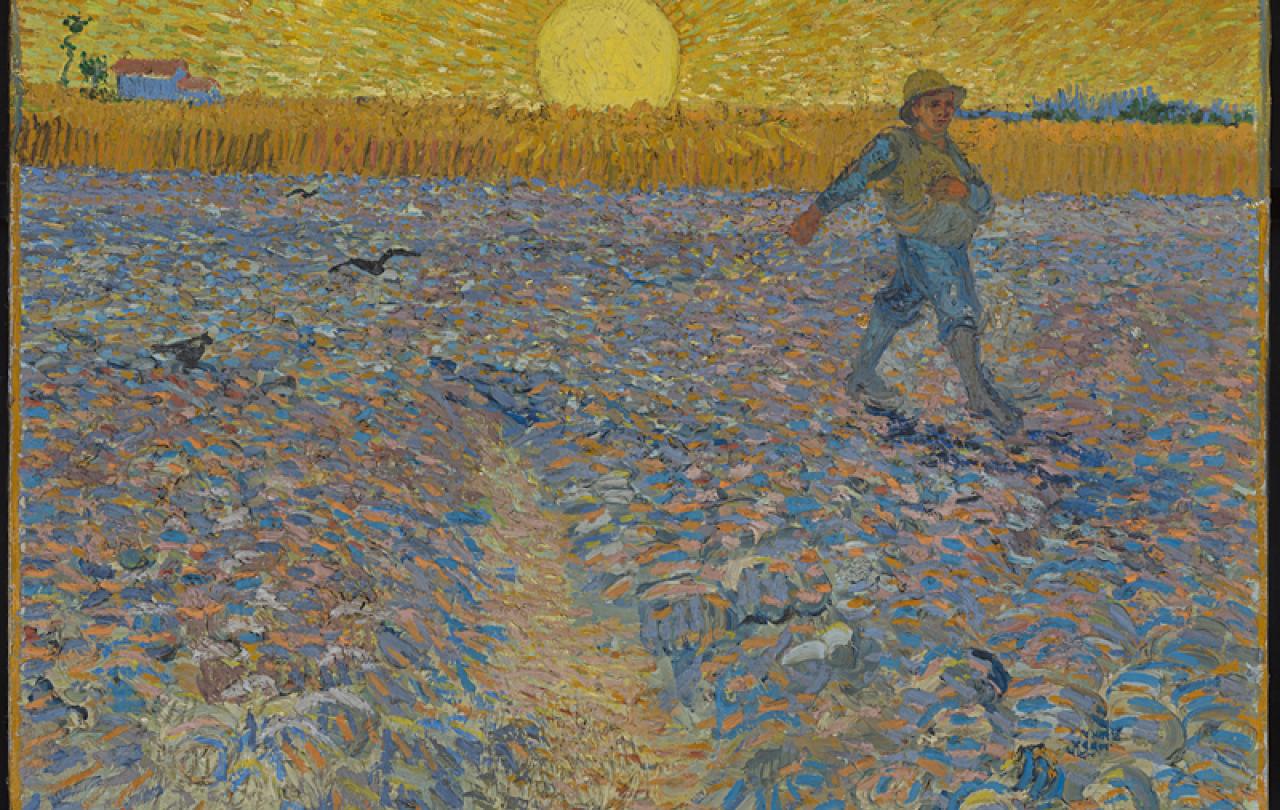
It goes without saying that all contemporary films about demonic possession and exorcism are seen in the light of the great masterwork. 1973’s The Exorcist is pretty much a perfect encapsulation of what an exorcism film needs to have: believable characters, a strong script, proper pacing, and a genuine respect for the concept of the supernatural – all culminating in an opportunity for the viewer to wrestle with their faith. Exorcism films rise or fall by the metric this cinematic cornerstone inaugurated. I’m pleased to say that The Pope’s Exorcist does a reasonably decent job.
Let’s be clear: it’s silly fun, and a bit of candy-floss fluff, which allows Russell Crowe to launch an assault on yet another accent. Yet, sugary-sweet fun is no bad thing, and underneath the loving horror-genre-cliché surface, there is something of substance to consider. The plot is standard: afflicted family – Julia and her children Amy and Henry – arrive in Spain to oversee the restoration of an old Abbey Julia’s late-husband left the family. Boy is possessed. Boy cannot be saved by medical science, so the exorcist saves the day.
The performances are all committed, and you can tell the performers are having a great time, Crowe especially.
The possession is quick and effective with scenes suddenly cutting from the horrifying to sanitised medical procedures (an homage, I think, to the great original). Attempts to explain matters away scientifically are attempted and quickly abandoned, and the film is proudly unambiguous. The Holy Father knows of this Abbey, and its dark history, and personally tasks Crowe’s Amorth with uncovering the truth. The film’s pacing is excellent in the first half, and wastes little time in introducing the main players. The script is sharp and lean (for the most part), with minimal exposition, allowing details to emerge naturally. The performances are all committed, and you can tell the performers are having a great time, Crowe especially. The final third is tremendously silly and overblown, and probably could have been cut down dramatically, but one can forgive it its excess for the themes it raises.
Purportedly based on the autobiographical writing of the late Father Gabriel Amorth, sometime exorcist for the Diocese of Rome, The Pope’s Exorcist could be viewed as shifting the burden of the question posed by the 1973 classic (what does it mean to have faith in the face of true and terrifying inexplicable evil?) to the institutional level. It is 1987 and the winds of modernity are blowing hard. Amorth (Crowe) is a contradiction of a priest – he rides a Vespa scooter, jokes around with nuns, and demonstrates a relaxed attitude with those in authority, and yet his faith in God and his belief in the supernatural is solid. He works tirelessly in a world and a Church that balks at him: expecting rigidity and conformity in outward appearance, yet sceptically admonishing him for his belief. It could’ve just as easily been set in 2023. Such themes resonate in the context of a Western Church still struggling for self-definition in a modern world of which it is ‘in’ but never meant to be ‘of’.
The film is very much speaking into the moment. What is the supernatural, and does the Church even believe in it?
The question the film raise (whether it means to or not) is how will the Church see itself and its mission in the coming decades. Early on Amorth is admonished by an American cardinal who is intent on making the Church more ‘relevant’ to the modern sceptical generation. He sees little use for the office of exorcist, and seems to disregard the supernatural as fantasy. As Amorth investigates the possession he learns the dark truth of the Abbey and its role in the Spanish Inquisition. He is confronted with the pernicious persistence of sin – his sins, the sins of those around him, and the historic sins of the Church.
The film is very much speaking into the moment. What is the supernatural, and does the Church even believe in it? What is evil, and what does it mean for a man and for the Church to truly deal with sin? How can the Church speak into a world that does not believe, and yet is not equipped to confront the reality of evil?
As the film reaches its conclusion it becomes clear that the Enemy does not wish to simply possess a child, but wishes to possess the Church. Watching the film in view of the present struggles the faith faces – a struggle over the very definition of sin, evil, redemption, etc – one can read the demon as a stand-in for the Spirit of the Age. Whether it means to or not, The Pope’s Exorcist asks the viewer to genuinely tackle the question of who ought to direct the Church – contemporary mores or the eternal truth of Christ? The final scene gives a hopeful answer while also hinting at the possibility of sequels. It is camp, it is silly, but it affirms life, goodness, truth, and faith, and I wouldn’t say no to another outing for Crowe as Amorth.





